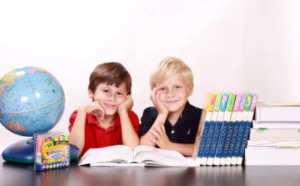Geography is a key subject in the school curriculum, providing children with a deep understanding of the world around them. From learning about different countries and cultures to studying environmental issues and natural resources, geography lessons help children develop critical thinking skills and foster a greater appreciation for the planet. In this blog, inspired by the teachings of this independent school in Berkshire, we will explore the various lessons children learn in geography and why the subject is so important.
Understanding the World Around Us
One of the primary objectives of geography lessons is to help children understand the world they live in. Geography teaches children about the Earth’s physical features, including mountains, rivers, oceans, and climates. By learning about continents, countries, and major cities, children develop a global perspective and a sense of the planet’s vastness. This knowledge encourages curiosity about different regions and cultures, sparking an interest in travel, exploration, and world events.
Exploring Physical and Human Geography
Geography lessons are divided into two main branches: physical and human geography. Physical geography focuses on natural features such as landforms, weather patterns, and ecosystems. Children learn about how natural processes shape the Earth, from volcanic eruptions to the water cycle. By understanding these concepts, students gain an appreciation for the dynamic and ever-changing nature of the world.
On the other hand, human geography explores how humans interact with their environment. This includes topics like population distribution, urbanisation, and the impact of human activity on the environment. Geography lessons help children understand how societies are structured, how cultures evolve, and how cities grow and change over time.
The Importance of Mapping and Location Skills
Geography lessons teach children essential skills in map reading and navigation. By learning about maps, globes, and coordinate systems, children gain the ability to locate countries, cities, and landmarks on a map. These skills are not only valuable for geographical understanding but also promote spatial awareness, which is important for everyday tasks such as following directions or understanding distances.
Maps and atlases provide visual representations of the world, helping children comprehend spatial relationships between places. Learning about different types of maps, such as topographic and political maps, allows children to interpret various forms of data and see the world in new ways.
Raising Awareness of Environmental Issues
In today’s world, environmental issues are more important than ever. Geography lessons play a crucial role in raising awareness about topics like climate change, deforestation, pollution, and resource management. Children learn about the Earth’s ecosystems and how human activities impact the environment. Through discussions about sustainability and conservation, geography helps children develop a sense of responsibility towards the planet and encourages them to think about ways to protect the environment for future generations.
Building Critical Thinking and Problem-Solving Skills
Geography lessons encourage critical thinking by asking children to analyse data, make connections, and solve problems. For example, they may study the effects of climate change on different regions or explore how a natural disaster like an earthquake can impact a community. By considering different factors and viewpoints, children develop the ability to think analytically and make informed decisions. These skills are valuable not only in geography but also in other subjects and real-life situations.
Geography lessons are much more than just memorising maps and facts about countries. They teach children important life skills such as critical thinking, problem-solving, and global awareness. By exploring both the physical and human aspects of the world, geography fosters curiosity and helps children better understand the complex relationships between people and the environment. In an increasingly interconnected world, geography is an essential subject that prepares children for the challenges of the future.
Note: This is a collaborative post

No Comments